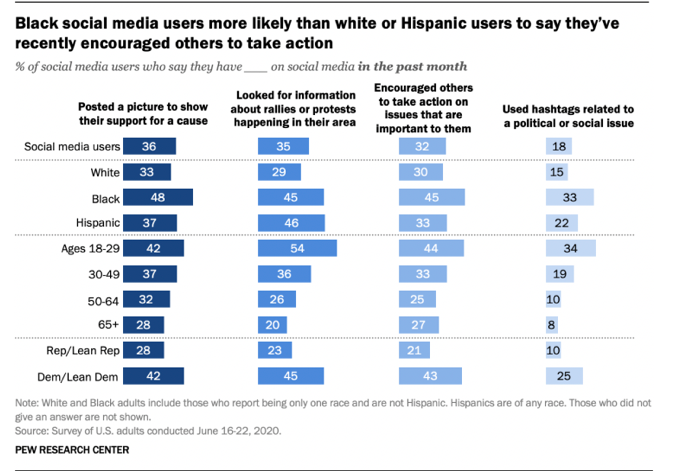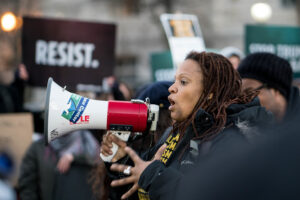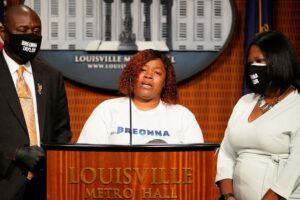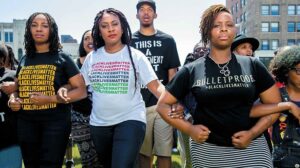
By Kayla-Ajanae Archer-Buckley
Social media has become a key component of activism in the last few years. Movements are easily able to gain traction with the use of hashtags. Popular platforms like Twitter also make it easier to spread information through infographics, circulate crowdfunding pages and share other resources.
On its 10-year anniversary in 2016, Twitter published a list of most-used hashtags related to social causes. According to the Pew Research Center, “two of the top three were directly related to issues of race… #Ferguson was the most used social-issue hashtag… while #BlackLivesMatter was third.”
The Black Lives Matter hashtag reached Twitter for the first time in 2013. As more cases of violence against Black men and women were revealed, use of the hashtag increased. In 2014 after Michael Brown was fatally shot by a police officer, the Black Lives Matter hashtag appeared 172,722 times on Twitter, Pew said. From its initial appearance in mid-2013 through March 2016, the hashtag #BlackLivesMatter appeared on Twitter almost 11.8 million times, the center found.
After George Floyd and Breonna Taylor were killed at the hands of police this year, use of the hashtag spiked again. All over social media outlets, #BlackLivesMatter, #Sayhername and #Justicefor___ could be seen trending in response to police brutality.
If you’re wondering who’s responsible for the acceleration of social media activism, the answer is Black people. A survey conducted in 2020 by Pew Research showed “Black social media users are more likely than white or Hispanic users to say they’ve recently encouraged others to take action… Black users stand out: 48% of Black Social media users say they have posted a picture on social media to show their support for a cause in the past month, compared with 37% Hispanic users and 33% white users.”

If Black people are disproportionately responsible for sharing posts about these stories and engaging in social media activism, does that affect the mental health of individuals in the Black community?
A small, 8-month-long study of young adults in Pakistan examined if there were any links between psychological stress and political activism on social media. The Pakistan Journal of Medical Sciences report in 2017 concluded, “Political activism via social networking sites is playing a significant role on adult persons’ mental health in terms of stress among different occupations.”
Dr. Rashanta Bledman, a licensed psychologist in Washington, D.C., who specializes in racial trauma, said, “I have seen an increase in racial trauma in my Black patients, who have been inundated with the ‘trauma porn’ of White police/individuals murdering Black folk. Racial trauma is becoming more widely recognized and discussed among professional and lay communities. We are finally beginning to understand that viewing or reading about the blatant racism and violence going on can cause symptoms of trauma, sometimes even diagnoses of PTSD [post-traumatic stress disorder] or other anxiety-related symptoms.”
There are additional negatives that may accompany social media usage, even without the intent of activism.
Bledman said: “One of the negatives is the unwitting exposure to violence. I have spoken with many people who talk about opening their social media accounts and immediately seeing a disturbing video. Someone may just be going on to their accounts to see their fav beauty guru apply liquid liner, and they are suddenly seeing a Black man being shot by police. It can be shocking and unsettling.”
“Also, many people may have negative opinions based solely on what they view,” Bledman said. “I have seen many naysayers comment things like, ‘He should have just listened!’ or ‘She should have just stopped!’ or ‘Why was he there anyway?’ That’s so invalidating!”
Social media helps people share stories that may have gone unreported otherwise. It even creates a sense of community and allows the Black community to grieve together and find solace among one another. However, early evidence, albeit limited, appears to show that engaging in social media activism frequently, as Black people do to a greater degree than others, can have negative effects on mental health.


